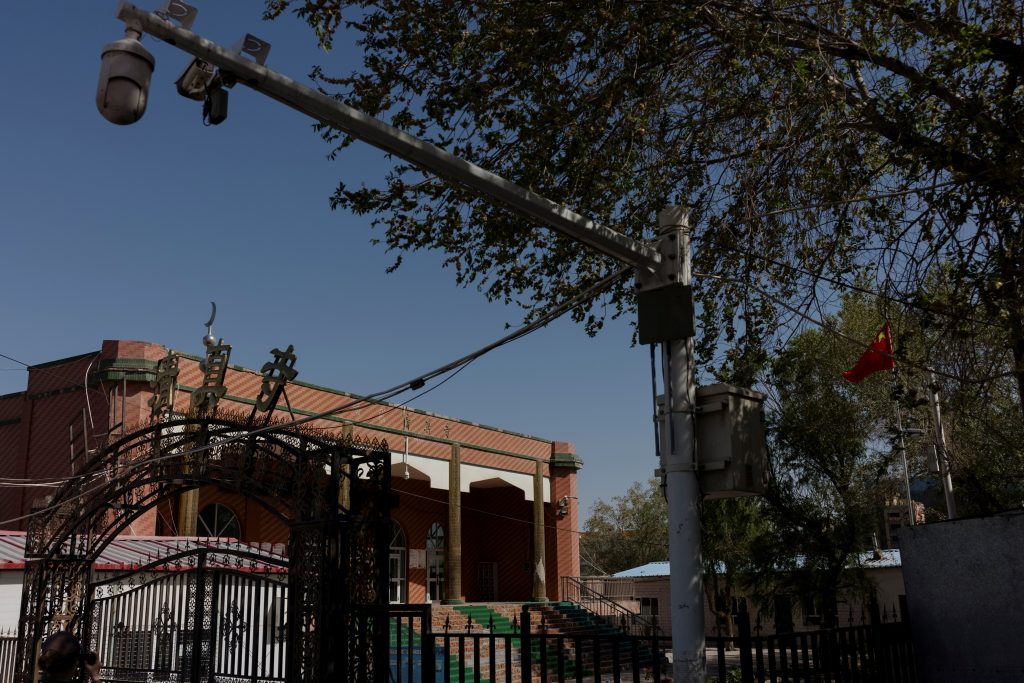A strategic framework for countering China’s human-rights violations in Xinjiang
China is engaged in a systematic campaign of repression against predominantly Muslim ethnic minorities in Xinjiang Uyghur Autonomous Region (XUAR) in northwest China. Through a combination of detention camps, mass surveillance, birth suppression, and other means, China is responsible for gross human-rights violations.
In recent years, the international community has devoted an increasing amount of attention to China’s actions in Xinjiang. Earlier this year, the United States declared that Beijing’s behavior constituted genocide. More recently, the United States and several key partners announced multilateral sanctions on Chinese officials facilitating repression in the region. To build on these developments, the United States and its allies and partners should adopt a more strategic approach to addressing China’s human-rights abuses. This Issue Brief proposes a framework for such a strategy, articulating a multilateral approach for dealing with China’s repressive actions in Xinjiang.
This Issue Brief argues that addressing China’s abuses in Xinjiang is of strategic importance. Ultimately, the goal of this strategy is to achieve an end state in which China has ceased its repressive activities; however, even if achieving this objective proves elusive, imposing costs on Beijing’s actions in Xinjiang can still serve broader strategic ends vis-a-vis China. China has chosen an assertive path to attaining global power and influence, and decades of economic growth and incorporation in the global economic system have not been enough to transform Beijing into a responsible stakeholder in a rules-based international system. The United States and its allies and partners will need to impose costs on Chinese behavior that violates international norms. Imposing costs on China’s human-rights violations in Xinjiang is a critical element of a broader strategy to dissuade Chinese Communist Party (CCP) behavior that undermines international norms and to push Beijing toward becoming a cooperative member of a rules-based international system.

Following on this broad analysis of the strategic importance of addressing China’s human-rights abuses, this Issue Brief proposes a narrower goal of achieving an end state in which China has ceased its repressive activities in Xinjiang.
This framework is divided into three components: building a coordinated international response to China’s behavior in Xinjiang; reducing the ability of the Chinese government, corporations, and individuals to benefit economically and financially from abuses in Xinjiang; and working with Beijing to encourage positive reforms in Xinjiang. The United States and its allies and partners should convince China that it will find itself increasingly isolated diplomatically, facing a far more powerful coalition of states that is also willing to impose economic and financial costs on China’s human-rights violations. As China realizes the costs of its actions, the United States and its allies and partners should engage Beijing on implementing reforms that will enable prosperity and safeguard human dignity in Xinjiang.
The situation in Xinjiang is one of the defining human-rights challenges of the twenty-first century, and it will require a sustained, coordinated multilateral effort to achieve a resolution in which China abandons its system of repression.
Lead authors

The Global Strategy Initiative serves to directly advance the Scowcroft Center’s core mission by cultivating an ecosystem of strategic thinkers and developing sustainable, nonpartisan strategies to address the most important security challenges facing the United States and the world.
Image: A perimeter fence is constructed around what is officially known as a vocational skills education centre in Dabancheng in Xinjiang Uighur Autonomous Region, China September 4, 2018. This centre, situated between regional capital Urumqi and tourist spot Turpan, is among the largest known ones, and was still undergoing extensive construction and expansion at the time the photo was taken. Police in Dabancheng detained two Reuters journalists for more than four hours after the photos were taken. Picture taken September 4, 2018. To match Special Report MUSLIMS-CAMPS/CHINA REUTERS/Thomas Peter
